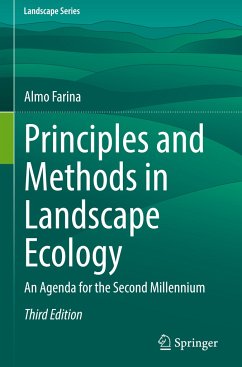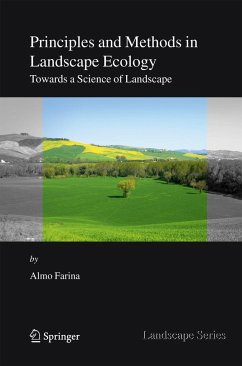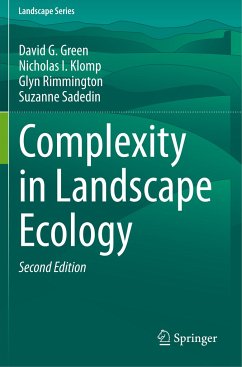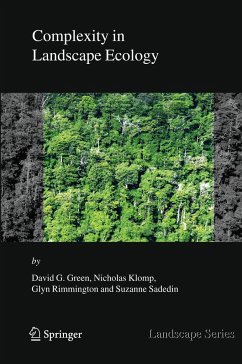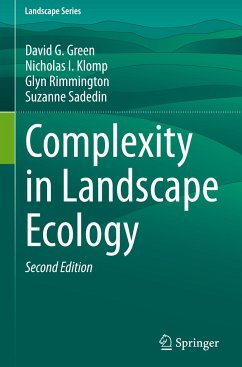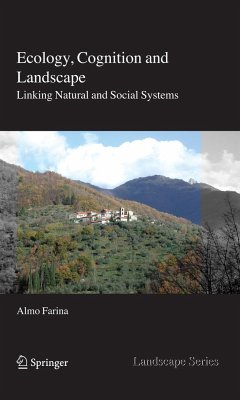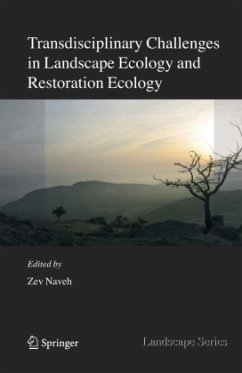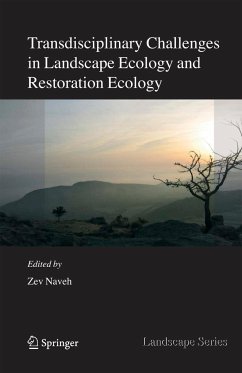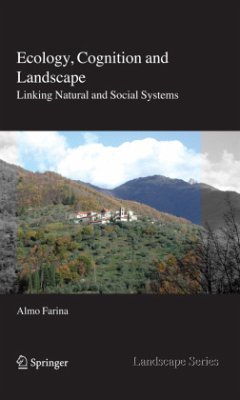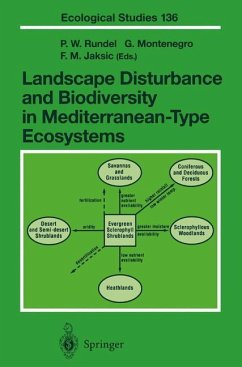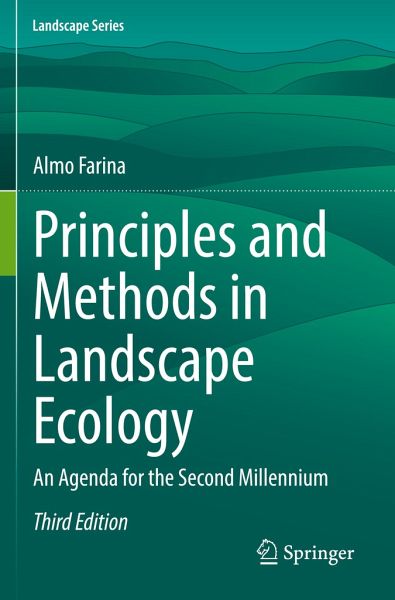
Principles and Methods in Landscape Ecology
An Agenda for the Second Millennium
Versandkostenfrei!
Versandfertig in 6-10 Tagen
61,99 €
inkl. MwSt.
Weitere Ausgaben:

PAYBACK Punkte
31 °P sammeln!
This third, thoroughly updated edition of a well received book, presents the most complete collection of theories, paradigms and methods utilized by the landscape sciences. With the introduction of new ecosemiotic concepts and innovative managing procedures, it offers a broad list of ecological, ecosemiotical and cultural tools to investigate, interpret and manage the environmental complexity according to a species-specific individual-based approach.Readers will discover the importance of a landscape perspective to create strategic bridges between science and humanities favored by the holistic...
This third, thoroughly updated edition of a well received book, presents the most complete collection of theories, paradigms and methods utilized by the landscape sciences. With the introduction of new ecosemiotic concepts and innovative managing procedures, it offers a broad list of ecological, ecosemiotical and cultural tools to investigate, interpret and manage the environmental complexity according to a species-specific individual-based approach.
Readers will discover the importance of a landscape perspective to create strategic bridges between science and humanities favored by the holistic sight of sensorial (visual, acoustic, olfactory, tactile, and thermal) "scapes".
Distributed in 10 chapters, the content covers many aspects of the landscape sciences ranging from the description of fundamental theories, principles and models originated by ecological approaches like source-sink models, island biogeography, hierarchical theory and scale. The ecosemioticalapproaches like the eco-field model, the ecoscape paradigm, and the general theory of resources are widely described and discussed. A cultural approach to landscape is utilized to focus on the heritage values of territories and their environmental identity.
This book, written in an accessible and didactic style, is particularly dedicated to undergraduate and graduate students but also scholars in ecology, agroforestry, urban planning, nature design, conservation and remediation. Land practitioners, farmers and policymakers can use this book as an authoritative guide to better understand the function and role of environmental systems according to a social-economic integrated perspective.
Readers will discover the importance of a landscape perspective to create strategic bridges between science and humanities favored by the holistic sight of sensorial (visual, acoustic, olfactory, tactile, and thermal) "scapes".
Distributed in 10 chapters, the content covers many aspects of the landscape sciences ranging from the description of fundamental theories, principles and models originated by ecological approaches like source-sink models, island biogeography, hierarchical theory and scale. The ecosemioticalapproaches like the eco-field model, the ecoscape paradigm, and the general theory of resources are widely described and discussed. A cultural approach to landscape is utilized to focus on the heritage values of territories and their environmental identity.
This book, written in an accessible and didactic style, is particularly dedicated to undergraduate and graduate students but also scholars in ecology, agroforestry, urban planning, nature design, conservation and remediation. Land practitioners, farmers and policymakers can use this book as an authoritative guide to better understand the function and role of environmental systems according to a social-economic integrated perspective.



